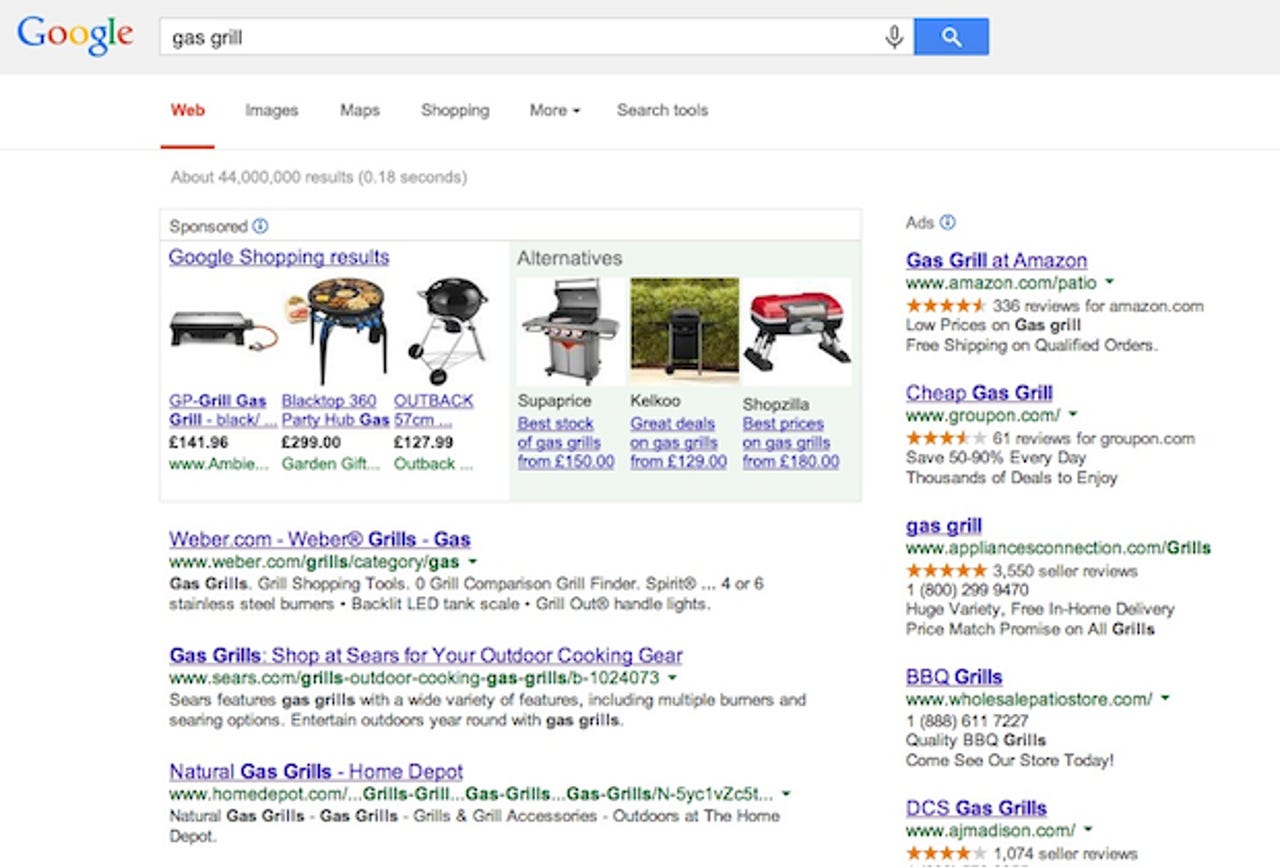Google finally puts EC antitrust case to bed

The European Commission looks to have resolved its long-running antitrust case with Google over search.
The EC's competition commissioner Joaquín Almunia announced the move in Brussels on Wednesday, saying the company had finally come up with a package of measures that successfully allayed fears the company was abusing its dominance of the search market in Europe.
The EC's antitrust concerns centred on four areas: that Google was promoting its own vertical search products (such as flight or hotel search) above rivals'; that it was displaying content from other companies in such products without their consent; that it put exclusivity constraints on its advertising customers; and that the agreements it struck with those customers restricted the portability of their campaigns.
The company has now moved to address those concerns, according to the EC.
Google has agreed to display links to three rivals' vertical search products in a manner comparable to its own — for example, with the same level of prominence on the page and if Google's ad for its hotel search has a picture, so much its rivals'. It also guaranteed that this would be the case for current products and those it might release in the future.

To counter the EC's second concern, Google will allow companies to opt-out of having their content included in its search products on a subdomain by subdomain basis.
To tackle the issues with advertising, Google says there will be no "written or unwritten" exclusivity agreements with advertisers to buy all their ads from Google, and remove obligations that would prevent advertisers from porting or managing search advertising campaigns across ad services from Google's competitors.
The EC will now ask the companies whose complaints prompted the opening of the antitrust probe for their opinion. The Commission will take them into consideration before making its final decision on whether to make Google's proposal legally binding.
Almunia said he expects those companies to be satisfied with Google's proposed remedies. "I think we have solved the concerns that should be solved in an antitrust case... when I decided to go to this next step it's because I was thoroughly convinced it was a good step."
Should the measures be made legally binding, they will apply for five years and a monitor will be appointed to oversee how Google is meeting its commitments.
Google's SVP and general counsel Kent Walker said in a statement: "We will be making significant changes to the way Google operates in Europe. We have been working with the European Commission to address issues they raised and look forward to resolving this matter."
Three years and counting
The European Commission initially opened the antitrust probe in 2010 after a number of companies lodged a complaint with the EC alleging Google was abusing its dominance of the search market.
Google published its proposed remedies to allay the EC's concerns in April last year, which included better labelling of search results to show when Google's search engine is promoting the company's services.
However, Almunia demanded more from Google, saying the proposals were not enough to allay the EC's concerns — a sentiment echoed by some of Google's rivals. Google subsequently offered up a revised set of concessions, which were similarly rejected. The EC requested a third set of remedies, warning the company in January that it expected Google's new offer within weeks.
Had Google failed to come up with a satisfactory package on its third go, the EC would have been forced to choose a "more adversarial path," Almunia said.
"I have rejected twice Google's proposals, and said the next try should be the last one," he told a press conference today.
Under EC law, a company found guilty of antitrust violations — potentially the conclusion of Almunia's "adversarial path" using Article 7 — can be fined up to 10 percent of its annual turnover. In Google's case, that would have amounted to around $5.6bn.
More on Google's antitrust battle in Europe
- 'Has Google done enough?' EC seeks opinions on second batch of antitrust remedies
- Google submits further concessions in bid to avoid EU antitrust fine
- EU to Google: Antitrust proposals are 'not enough'
- EU antitrust chief hints at forced changes for Google
- Google gets ultimatum over EC antitrust probe